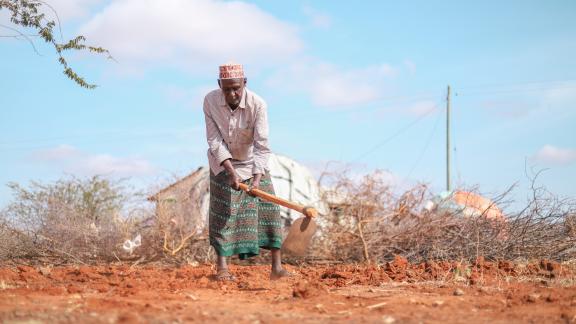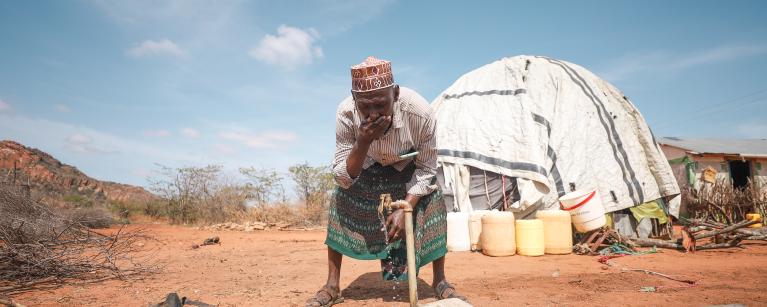These are some of the words residents of Buna in Wajir County are using to
describe the last drought.
You see, communities in Wajir County are not strangers to drought. They are
pastoralists. They understand seasons, but this, this was different. Far from
what they have ever experienced.
Five failed rain seasons is unexpected, four years of no rainfall is hard-hitting;
especially when ‘normal’ drought cycles would last a year or so.
Abdirahman has a tall majestic frame, despite what life has thrown at him, he
stands unmoved. He, like other community members in Buna, is a pastoralist.
He lost most of his livestock during the drought. His biggest challenge was
accessing water.
“Women and children would walk long distances to fetch water. They would goin search of water with little babies on their backs and come back back at theend of the day empty-handed. It was a hard season.”
Oxfam through its partnership with Wajir South Development Association
(WASDA) and Arid Lands Development Focus (ALDEF), under the ASAL
Humanitarian Network (AHN), with the generous funding from the Swedish International Development Cooperation Agency (SIDA) built a metallic water tank and worked on piping
water from the borehole and bringing it closer to the community.
This has significantly reduced the distance travelled by women and children as they fetch water in their homes. 1,400 households were able to access safe water as a result of the rehabilitation works.
“We now have access to clean water. The water at the tank is purified and is safe for use.”
Abdirahman points us to the piece of land he has set aside to do a bit of farming. He is glad he finally has tapped water that will allow him to work on a kitchen garden.

Abdirahman Hussein tilling his kitchen garden in Buna Village, Wajir. Image credit: Mark Wahwai.
He is grateful that his wife has more time on her hands now that she has clean water at home and can access it whenever she wants.
